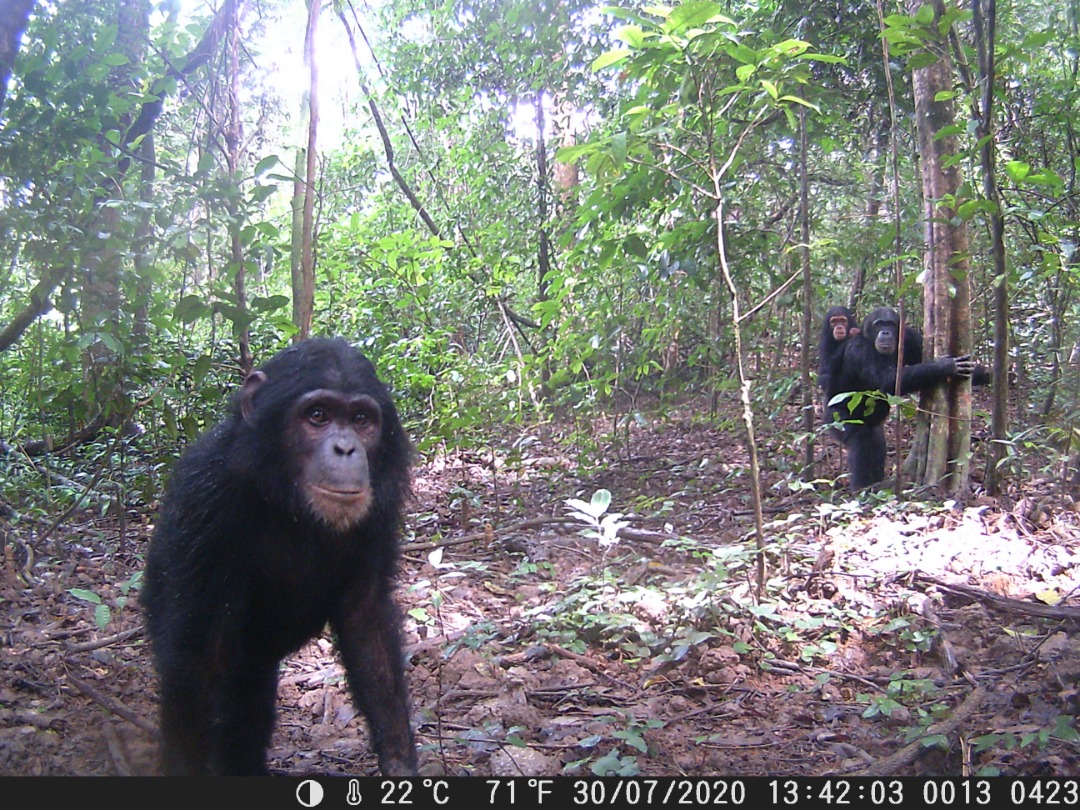Initiated in 2018, the objective of CAMGAEPP is to support the conservation of Great Apes and Forest Elephants in and around the Campo Ma’an National Park. Through the joined efforts of local communities, politicians and conservation experts, the project hopes to safeguard declining populations of great apes and forest elephants in the area by reducing threats of bushmeat hunting and human-wildlife conflicts which have been largely blamed on the absence of proper conservation education, alternative protein and income-generating sources and effective human-wildlife conflict mitigation strategies.
This program comprises specific activities including but not limited to the following:
- Radio programs involving rebroadcasts, debates and call-ins. Through locally-tailored radio programs, a wide audience (farmers, hunters, bushmeat consumers) is being educated on the devastating impacts of unsustainable bushmeat hunting especially of great apes, the far-reaching implications of forest degradation and on relevant wildlife laws and bushmeat regulations. Our main objective here is to foster sustainable behavior, improve public support for conservation, reduce vandalism/poaching in the area, and influence policies and decisions that affect the forest and its natural resources.
- Create school wildlife clubs known as 237 Green Schools to increase knowledge of environmental issues and to promote awareness and concerns for nature conservation in youths who represent future stewards of the forests
- Regular visits to human-wildlife conflicts hotspots is being used to reaffirm positive attitudes towards wildlife (especially elephants and gorillas), promoting a message of tolerance and understanding of the needs and intrinsic value of these animals.
- Organization of indigenous communities (forest users) into groups known as Campo Ma’an Wildlife Guardians (CMWGs) with the objective of building their capacity in bio-monitoring and in sustainable income generation activities including chili cultivation, beekeeping and mushroom production; train them on how to use beehive fencing and chili bombs in mitigating human-wildlife conflicts.

